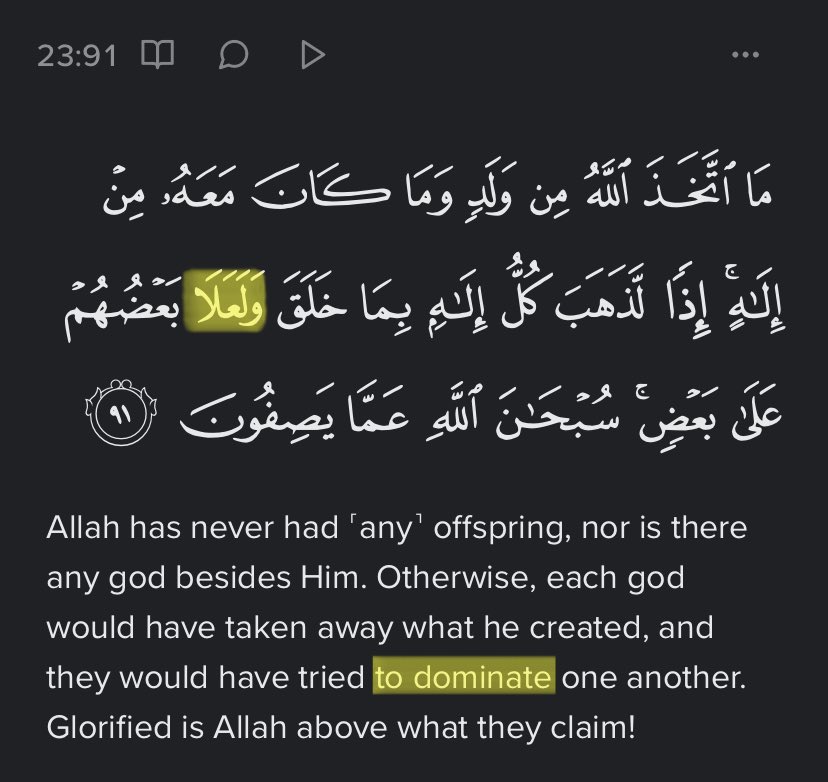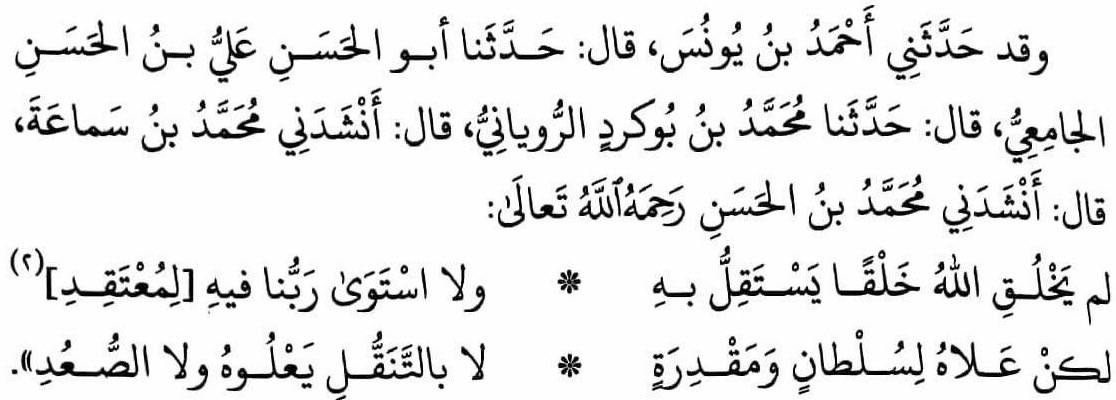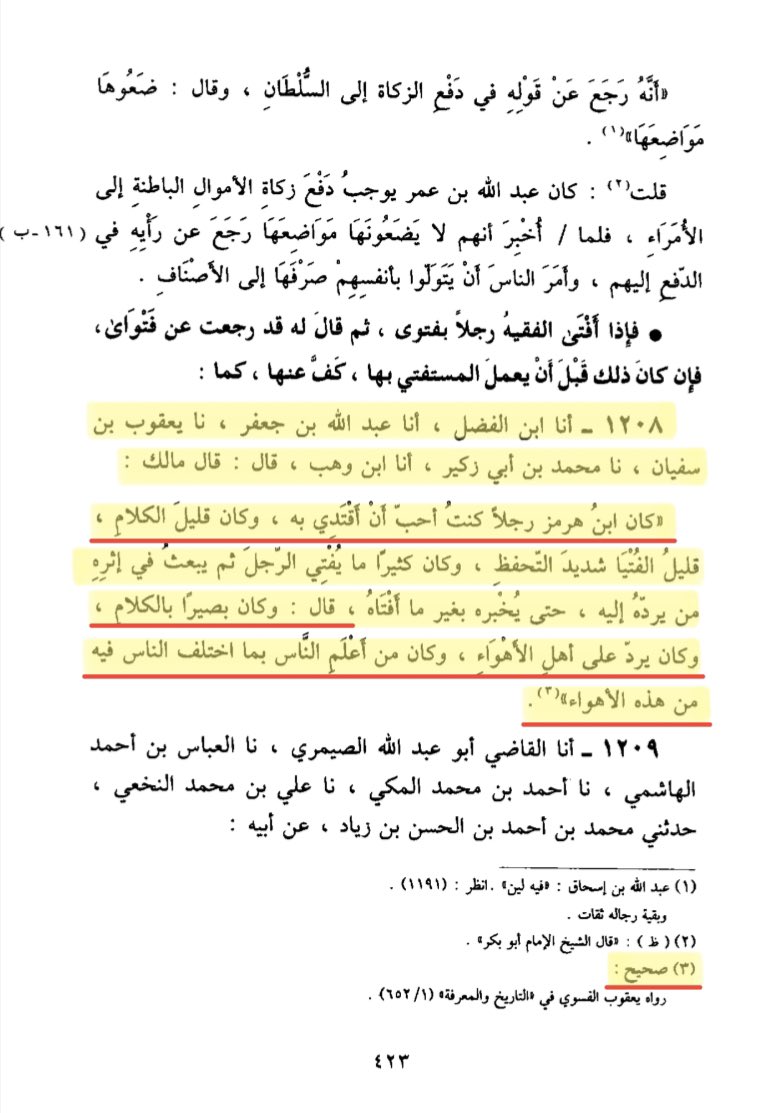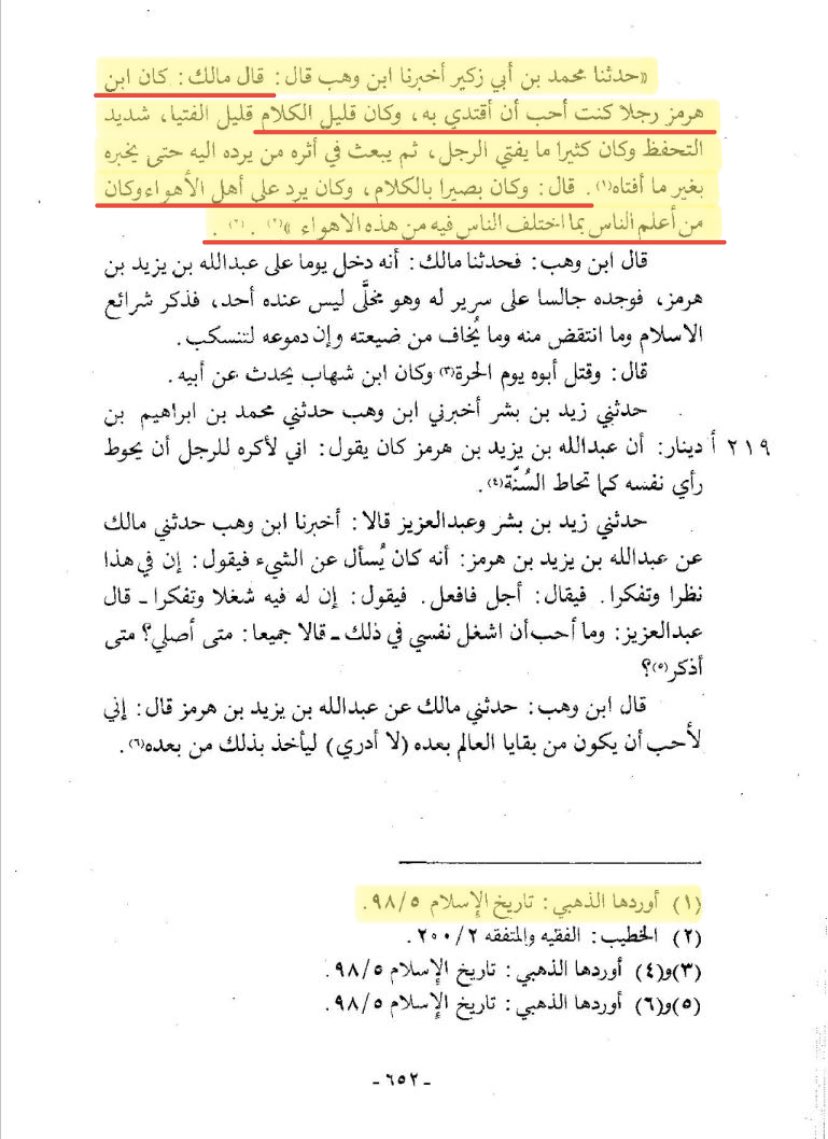
Nothing much to answer…
Al Tabari: Al ‘Aliy: the one possessing al ‘uluw and irtifa’ over His creation with His omnipotence.
Al Tabari puts the 2 together so even with irtifa’ it’s still the same meaning.
Al Tabari: Al ‘Aliy: the one possessing al ‘uluw and irtifa’ over His creation with His omnipotence.
Al Tabari puts the 2 together so even with irtifa’ it’s still the same meaning.
https://twitter.com/mahmud_murrah/status/1631402260336111616

Who decides what is best and what is not? ‘Aliy/‘Ala is used in the Quran to mean dominate so your objection fails.
https://twitter.com/mahmud_murrah/status/1631402392905478154
I’m quoting Abu Hanifah’s companion Muhammad al Shaybani and you quote later scholars who are not even from the Salaf…
https://twitter.com/mahmud_murrah/status/1631403536650235905
As @truthunveilled said, if he is considered reliable by our fuqaha’ and is a faqih then this is enough and it is authentic.
https://twitter.com/mahmud_murrah/status/1631404117829775369
Maybe some of them said it but they’re not from the Salaf.
As for Ibn Abi Zayd and al Baqilani, it is false.
Dhahabi said "bi dhatihi" is not authentic from the Salaf.
As for Ibn Abi Zayd and al Baqilani, it is false.
Dhahabi said "bi dhatihi" is not authentic from the Salaf.
https://twitter.com/mahmud_murrah/status/1631404741430493184
First of, al Humaydi said: we don’t explain nor add anything.
Secondly, Wahb ibn Jarir is referring to their rejection of the verse as the Jahmiyah said "there is no istiwa on the throne".
His words are clear but you chose to reinterpret it.
Secondly, Wahb ibn Jarir is referring to their rejection of the verse as the Jahmiyah said "there is no istiwa on the throne".
His words are clear but you chose to reinterpret it.
https://twitter.com/mahmud_murrah/status/1631405077209698304
The report doesn’t even prove anything as he is not giving a meaning. I don’t get why you would use it.
https://twitter.com/mahmud_murrah/status/1631405311373479937
They want to refute but they don’t read… I addressed it already even before you say anything about it…
This is not ilzam and this is not how ilzam works. I even brought Makki bin Abu Talib and Ibn Badran who did not believe in what you just said…
This is not ilzam and this is not how ilzam works. I even brought Makki bin Abu Talib and Ibn Badran who did not believe in what you just said…
https://twitter.com/mahmud_murrah/status/1631421156283781121
Makki bin Abu Talib quoted al Tabari as saying that istiwa means 'Ala and that it is not in the meaning of movement or displacement from place to place but it is a ‘uluw of domination
So here Makki bin Abu Talib disagrees with you!
So here Makki bin Abu Talib disagrees with you!
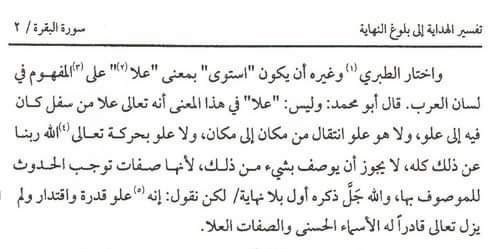
Ibn Badran also disagree with you:
"Tabari said: Uluww is of His might and dominion, not that of displacement and movement.
Ibn Badran disagrees with you and yet again no mention of ilzam!
"Tabari said: Uluww is of His might and dominion, not that of displacement and movement.
Ibn Badran disagrees with you and yet again no mention of ilzam!
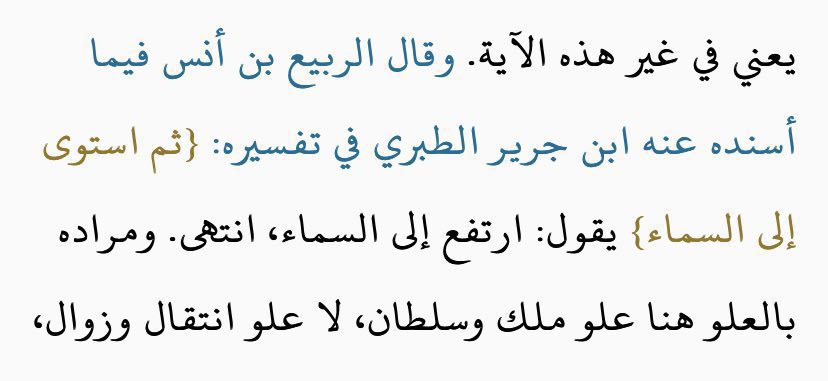
So what? I just showed you that he negates ‘uluw being about movement and displacement and affirm what Tabari affirmed, i.e. power and domination… 
https://twitter.com/mahmud_murrah/status/1631421159358210048
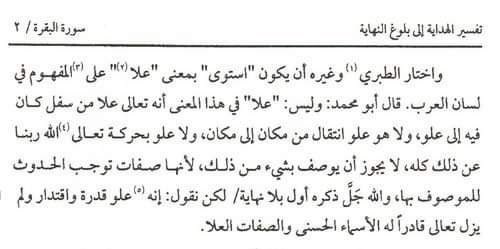
Ibn Abi Zayd didn’t say what you just said. You keep misquoting.
Ibn Abu Zayd said:
"al Majidu bi dhatihi"
"Glorious in His essence"
That is if we assume it is not an interpolation as some Maliki scholars have said…
Ibn Abu Zayd said:
"al Majidu bi dhatihi"
"Glorious in His essence"
That is if we assume it is not an interpolation as some Maliki scholars have said…
https://twitter.com/mahmud_murrah/status/1631421163925803009
Also, it is worth to mention that "bi dhatihi" was used by some later scholars but not in the sense of location.
As a matter of fact, some have said: "Allah spoke with Moses (as) bi dhatihi" - but what they meant is that there was no intermediary when this happened.
As a matter of fact, some have said: "Allah spoke with Moses (as) bi dhatihi" - but what they meant is that there was no intermediary when this happened.
You think al Qurtubi would say this and proceed differently? Of course not.
Al Qurtubi: Therefore, I say: the ‘uluw of Allah and His irtifa’ is an expression of ‘uluw of His Glory, His Attributes, and His Sovereignty
فعلو الله تعالى وارتفاعه عبارة عن علو مجده وصفاته وملكوته
Al Qurtubi: Therefore, I say: the ‘uluw of Allah and His irtifa’ is an expression of ‘uluw of His Glory, His Attributes, and His Sovereignty
فعلو الله تعالى وارتفاعه عبارة عن علو مجده وصفاته وملكوته
• • •
Missing some Tweet in this thread? You can try to
force a refresh



